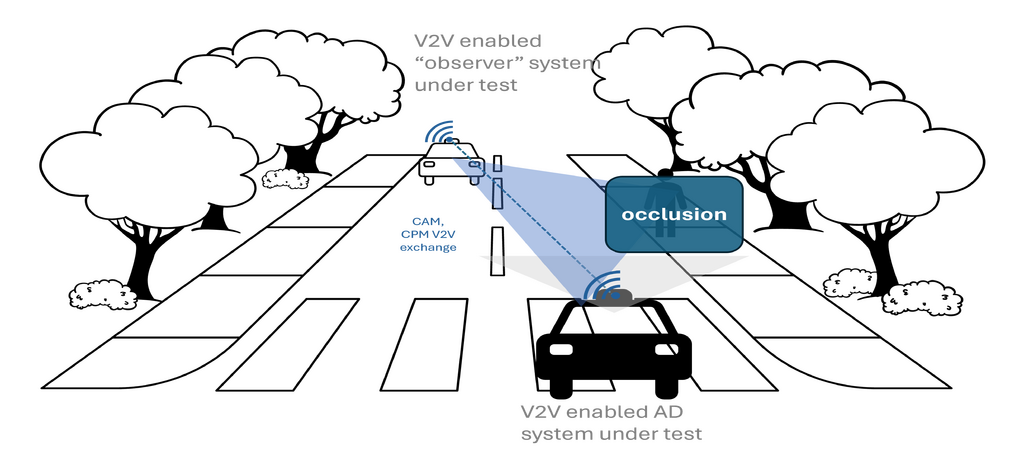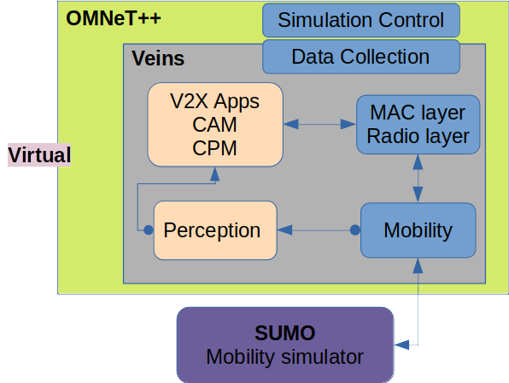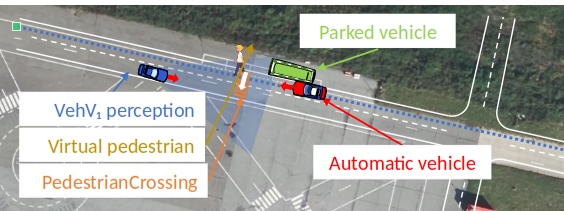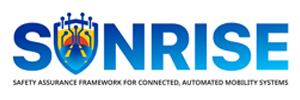UC1.3 – Cooperative Perception Testing
In Use Case 1.3, the SUNRISE SAF is tested for cooperative perception and decision-making in urban intersection scenarios. The SUT is the perception AD subsystem of an urban chauffer ADS which is also capable of sending/receiving and processing (on-board or off-board e.g. employing a remote smart RSU node) rich V2X information data mainly consisting of object-level data perceived from other road users.
There are three functional scenarios defined from T7.1 for assessing the cooperative perception system performance in Use Case 1.3. The first is the “darting-out pedestrian” scenario (1.3 A), the second one is the “urban junction” scenario (1.3 B), and the third one is the “urban roundabout” scenario (1.3 C).
Use case overview
The Use Case demonstrates SUNRISE safety argumentation for urban collective perception (CP) at pedestrian crossings, intersections and roundabouts, focusing on the co-simulation aspects and the safety case building when occlusions and vehicle to vehicle (V2V) connectivity aspects are present.

Objectives
Adapt existing methodologies and combine different test environments to support connected automated driving (CAD) testing and safety argumentation building.
SAF blocks demonstrated

Safety case setup
- CCAM system under test: Perception layer of an Automated Driving System (ADS) on a real vehicle, enhanced by cooperative perception. The system integrates external object-level data received via V2X communications (CPMs) from nearby vehicles.
- Operational Design Domain: Urban road with two-lane straight segment, presence of parked vehicles causing occlusion.
Test environments


Safety case building
- Safety evidence: Microscopic evaluation (on individual scenarios) of pass/fail results
- Safety case pass/fail binary result
- Test scenario allocation and re-allocation if needed in higher fidelity test environment
- Co-simulation framework execution
- Risk-oriented testing: Boundary scenarios identification
- Test scenario prioritization (based on scenario criticality, exposure and complexity as per ISO 34505)
- Modular approach: Independent subsystems & End-to-end system testing (Open-Loop / Closed-Loop)
- Verification of simulation results through Hybrid testing
Test scenarios selected
UC 1.3-A Darting-out Pedestrian
